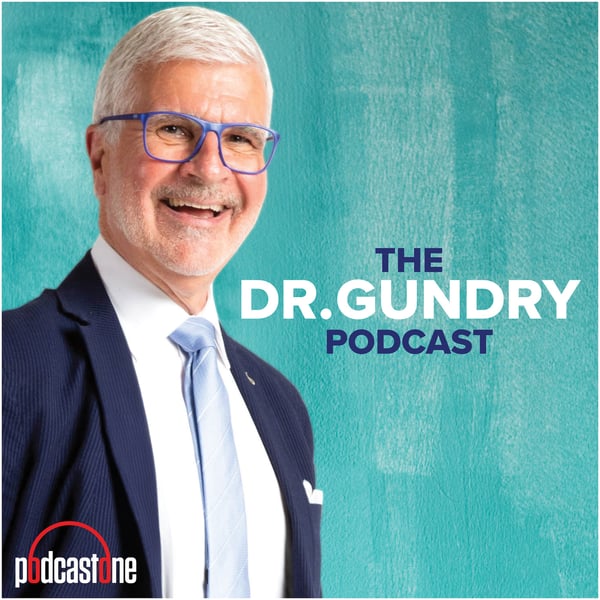Dr. Gundry's Quick Health Tip: EAT THIS FOR YOUR ONE MEAL A DAY WHEN FASTING | EP 240.B
The Dr. Gundry Podcast
PodcastOne
4.6 • 1.7K Ratings
🗓️ 1 February 2023
⏱️ 15 minutes
🧾️ Download transcript
Summary
Transcript
Click on a timestamp to play from that location
| 0:00.0 | Welcome to the Dr. Gundry Podcast. The weekly podcast where Dr. G gives you the tools you need to boost your health and live your healthiest life. |
| 0:14.0 | Dr. Gundry here with a new series of short health tip of the day episodes where I share cutting-edge research to save your health but also to save your time as well. |
| 0:24.0 | I feature some of the most important health topics you need to know in order to live long and well. |
| 0:29.0 | Stay tuned because in just 10 minutes you can take these tips I'm going to share to improve your health for good. |
| 0:38.0 | Alright, this is going to be a fun one. I want you to eat this for the one meal a day that you're eating when fasting. |
| 0:47.0 | Now if you've listened to this podcast for a while you know I eat one meal a day the so-called O-mad protocol during the winter as part of my fasting protocol for optimal health. |
| 1:02.0 | And I've been doing this now for 23 years and so far so good. |
| 1:10.0 | So everybody wants to know what do I eat for my one meal? Well I'm going to reveal this in just a moment but first I'm going to explain why I practice this intermittent fasting schedule for half the year. |
| 1:26.0 | So why would I do this? Well first of all I do it during the winter because winter would normally be a time of less food. |
| 1:37.0 | And that's true even in the jungle there are times in the jungle where we all came from originally where food is not very plantable. |
| 1:48.0 | Fruit as you know only ripens once a year in the jungle in the spring and summer and maybe a little bit in the fall and then it's not available at other times of the year. |
| 2:02.0 | Those of us who grew up in the northern hemisphere or even southern hemisphere where there are strong seasons know that the winter seasons is a time of less food availability. |
| 2:17.0 | You can't grow it in the winter you could store it potentially and even animals are harder to come by in the winter. |
| 2:26.0 | So there is good evolutionary evidence that we went through periods of getting a lot to eat and storing fat for the winter and then living on our fat for extended periods of time and not having much access to food. |
| 2:44.0 | And so there are circadian rhythms that happen in a 24 hour cycle that most of us are now aware of but there's also circadian rhythms that happen with spring, summer, fall and winter. |
| 3:00.0 | In fact looking at hunter-gatherers, modern hunter-gatherers they follow an absolute interesting seasonal circadian rhythm with the different foods they and interestingly enough their microbiome changes dramatically from season to season. |
| 3:20.0 | So there's evidence that we should vary our food and we should vary the amount of food and the types of food we eat from season to season. |
| 3:32.0 | So from an evolutionary standpoint I've chosen winter and spring as the times where I'm going to cut back on food. |
| 3:42.0 | Do I do it in the summer and fall? In general no, although last year I did add more omads to my diet during a week just for fun and it really didn't make much difference one way or another. |
| 3:58.0 | Now how in the heck do you just eat one meal a day? Aren't I starving to death all the time? |
| 4:05.0 | Well as I point out in my last two books you don't want to go from eating 16 hours a day, lots of little meals to eating in a two hour window and fasting 22 out of 24 hours. |
| 4:22.0 | Most people as I talk about in unlocking the Kyoto Code will fall flat on their face. You will have no energy, you will have headaches, you will not want to do anything. |
... |
Please login to see the full transcript.
Disclaimer: The podcast and artwork embedded on this page are from PodcastOne, and are the property of its owner and not affiliated with or endorsed by Tapesearch.
Generated transcripts are the property of PodcastOne and are distributed freely under the Fair Use doctrine. Transcripts generated by Tapesearch are not guaranteed to be accurate.
Copyright © Tapesearch 2025.

